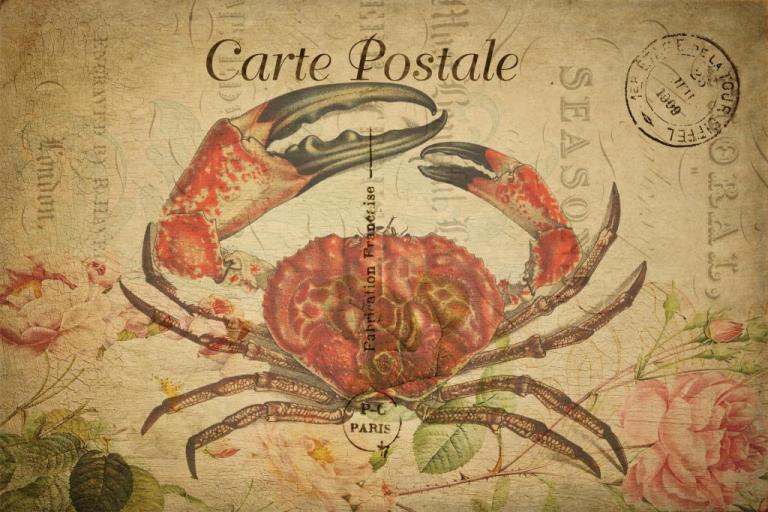Many years ago, back in the days of my Witchling youth, I received an email from a moderately well-known Pagan author, with the title of his most recent book in the subject line. Assuming it was a mass-mailed press release, I opened it up, all set to give it a perfunctory glance and SPAM it away.
However, it turned out to be a long, rambling, invective-filled rant addressed to me personally, condemning my incompetent (I think he meant ignorant) opinions and denouncing me (I promise I am not making this up) for the part I was playing in the vast, underground network of Wiccans bent on destroying him.

“Stop spreading your malicious lies!” he blathered. “I’ve authored or co-authored a dozen books and have five children. Why don’t you post your list of accomplishments, you idiot?”
Where in the hell is this coming from? I thought. Do I even know this person? What do children have to do with anything?
I wasn’t sure how to react, so I called my friend Deborah and read her the email.
“That… is… crazy,” she said, after a pregnant pause. “No, really. That’s crazy.”
I concurred.
It took me most of the following morning to piece the situation together, but about five months previously, on a relatively obscure online forum, someone brought up the author’s book and asked if anyone had read it. I replied that the book in question was a revised edition of an earlier work, that it really wasn’t very good, and that the author had a dubious reputation.
Not the kindest review, but not particularly inflammatory, either. People have certainly said worse about me. Hell, I’ve said worse about me.
What I learned post-mortem is that the forum didn’t have any privacy settings in place, so anything posted there could potentially turn up in an online search. As near as I can figure, the author was Googling himself and found my comments, which included my email address. Which led to a late-night hate letter.

I ended up just deleting the email without response, and I honestly haven’t thought about it in ages, but I was reminded of it a few days ago, when the same author appeared on Facebook to share some critiques of an upcoming online event.
He didn’t personally know any of the presenters, which was a conundrum, since he’s apparently the litmus for credibility, and he was concerned that most of them didn’t fit neatly into his definition of Witch. He also expressed dismay that the majority of presenters wouldn’t be eligible for membership in any of the organizations he’d helped found (and was later kicked out of).
The whole thing was very, “Kids today, with their jazz music and zoot suits,” but there was also a miasma of “Do you know who I am?” to which one of the organizers blessedly responded, “No. In fact, I do not.”
Fame is a transient thing, and it can be distressing to watch one’s star fall in real-time — I think the bigger issue for this author is not that he was unfamiliar with the panelists, but that he was not among them. And if this were an isolated incident, I probably wouldn’t even bother blogging about it: I’d just be like, “Oh, hey, it’s that guy,” and keep on moseying. But it’s a phenomenon I’ve witnessed repeatedly both inside and outside of Paganism, and at the moment, it’s on the rise. And I feel like it’s something we should acknowledge, or at the very least keep an eye on.

The contemporary concept of crabs in a barrel — originally coined by Booker T. Washington and popularized decades later by Ninotchka Rosca — states that if you put a bunch of crabs in an unsealed container, they won’t be able to escape, because if any of them are able to climb to the top, the others will latch on and pull them back down. As a metaphor for human behavior, crab mentality translates to, “If I can’t have it, neither can you.” It denotes a tendency to try to damage the self-confidence of anyone perceived as “too” successful, out of misplaced feelings of spite, envy, or resentment.
You see this a lot in the leather community, where new events are purposely scheduled to draw money away from long-running fundraisers, or where, whenever somebody wins a title, people slither out of the ducts to air grievances on why the victory is not deserved.
Right before I went to International Mr. Leather, several people wished me luck but also went out of their way to explain that I was far too unattractive to do well there. The fact that the people trying to pull me back into the bucket had either competed previously and not had good showings, or weren’t confident enough in themselves to compete in the first place, was not lost on me.

Within the greater occult community, crab mentality is primarily directed at Big Name Pagans, which is understandable in terms of accessibility but still not excusable. At the moment, and as we saw with our esteemed author above, there is much grumbling about online workshops, with objections ranging from the aforementioned, “I don’t know who any of these presenters are,” to “I know every one of these presenters and am bored with them,” to “Awards ceremonies are stupid and I don’t like anyone on the ballot so I’m not going to support it and neither should you.”
Also eerily similar to the leather community, by the way. In fact, here’s my favorite accusation ever about a leather contest (that I’d actually helped produce): “It was obviously rigged. The winner only won because the judges thought he did the best.”
I know, right? How very dare he win by winning.
While crab mentality is not exclusive to subcultures, it’s more endemic within them as opposed to mainstream society, since it goes hand in hand with horizontal hostility. And it’s particularly damaging within Paganism, because we tend to view Big Name Pagans as somehow more privileged than the rest of us. We don’t always see the sacrifices made to focus on art, or the juggling of mundane day jobs with book tours — what we do see is a small group of people getting attention and accolades that we maybe kind of want for ourselves.

I think part of this problem comes from perceiving “Big Name Pagan” as a career in and of itself. Maybe it bugs us that a select few get to play those roles, and in our jealousy, we try to tear them down.
The reality, though, is that Big Name Pagan is not a career. Author, visual artist, lecturer, poet — those are careers, which can sometimes fall within a Pagan paradigm. And we’re free to pursue any of them, and any success we achieve is not diminished by the success of other people.
Because success is not pie. One person’s accomplishments don’t reduce the amount of accomplishment allocated to anyone else. We’re not always open to considering this, since we’re stuck in a Greyface culture that demands we only find self-worth through comparison, but that doesn’t make it any less true. And I think it’s worth being grateful that we’re part of a community in which “celebrities” are often working to provide expanded opportunities for the rest of us.
Granted, not all of them — there are a few notorious Pagans out there who made names for themselves through slander and libel and controversy and semi-coherent emails sent in the drunken dead of night, and keeping them sequestered away in buckets is not a bad thing.
But those chuckleheads aside, the majority of Pagan creators are actively doing their best to make this corner of the world a more amenable place. If we’re going to pay them any mind, we’d do well to respond with our eyestalks instead of our pincers.


















